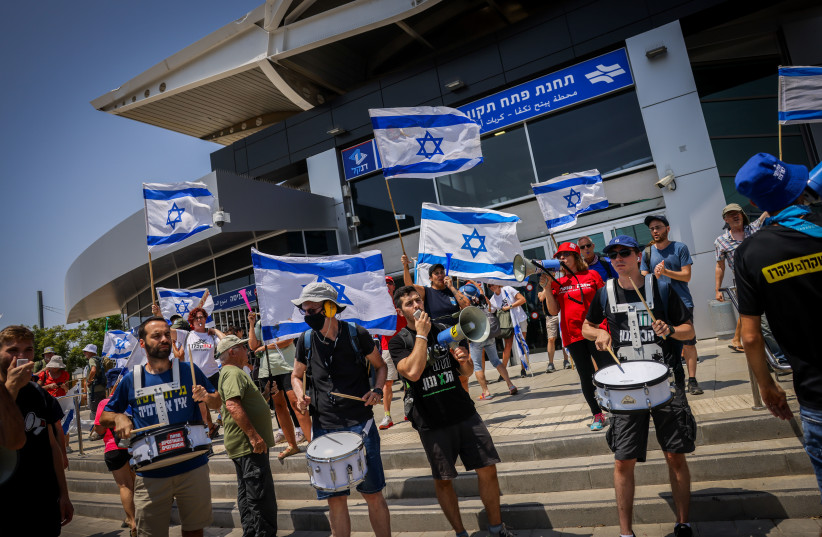Once upon a time, proud Israelis could tell their diaspora cousins, “In our country, the borders may be dangerous, but the cities and towns are safe!” However, we no longer make those claims, as the once-reliable image of safety has been shattered.
The number of murders in Israel is rising alarmingly, painting a grim reality that cannot be ignored. As we find ourselves in the year 2023, we mourn the tragic loss of life due to terrorism, marking it as the most devastating toll since the Second Intifada.
This unsettling trend extends beyond just the Jewish population; even our Arab citizens have fallen victim to this surge in violence, with this year’s death toll surpassing the previous years’. The escalating violence within the Arab community, initially attributed to organized crime and family feuds, has now taken a more ominous political turn, evident from the assassination of a municipal director and a mayoral candidate.
While my intention is not to cause undue panic, it’s a sobering truth that our nation is in the midst of a crisis. Our ancient sages’ wisdom holds true: “When fire erupts and finds thorns to fuel its flames, it does not discern between righteous and wicked.” Our nation is ablaze, both literally due to the surging violence and figuratively due to the escalating political tensions.
Amid this disheartening scenario, we find solace in the presence of wise and inspirational individuals who are determined to quell the flames that threaten to consume us. These individuals come from diverse walks of life, encompassing the political and religious spheres.

With a growing chorus of voices, including writers, ordinary citizens, and various advocates, there’s an increasingly urgent call to shift our mindset from a winner-takes-all attitude to prioritizing solutions through consensus and compromise. This alternative approach is rooted in humility and the realization that in our small nation, a winner-takes-all mentality is a delusion we can no longer afford.
Reestablishing communications
WHILE THE notion of a winner-takes-all mentality is a mere illusion, the rising violence gripping our society is all too real. The repercussions are far-reaching, impacting the fabric of our society. As violence escalates, citizens feel insecure and withdraw from communal engagement, breeding social instability.
In a climate where trust in public institutions is already fragile, a government’s inability to curtail the surge in murders exacerbates this mistrust, particularly in law enforcement and the criminal justice system. This disillusionment cascades into broader social fragmentation, causing lasting damage to our social cohesion.
In the face of these daunting challenges, a twofold strategy emerges as imperative. We must act decisively and skillfully to halt the tide of killings, concurrently working to restore faith in our institutions.
Simultaneously, we must pause and recalibrate our political approach. The belief in winner-takes-all must give way to a more collaborative paradigm, where everyone gains, though not necessarily everything they desire, or collectively, we lose.
In the midst of this tumultuous environment, practical solutions have been put forward. Prominent figures like Rabbi Yitz Greenberg and Professor Yedidia Stern have weighed in, advocating for a new path. Rabbi Greenberg’s recent article speaks to the religious heart of the matter, while Professor Stern proposes a “thin constitution,” a political idea expounded upon in a June 13 interview with Jewish Business News.
Hope also springs from the grassroots, where efforts are underway to bridge divides. A notable example is the four-month communication course held in Tel Aviv, which drew participants from every sector of the Jewish Israeli community. These everyday citizens, who are dedicated to dousing the flames and fostering unity are worthy of our respect, support, and active engagement.
With urgency, we must extinguish the fires that threaten our nation and begin the process of weaving back together the fraying social fabric. In this pivotal moment, the truth becomes clear: winner-takes-all is a recipe for loss. Instead, the path to success lies in collective victory, where shared compromise and understanding pave the way forward.
The writer, a PhD, is a psychologist, writer, commentator, and host of The Van Leer Series on Ideas with Renee Garfinkel: newbooksnetwork.com/category/special-series/van-leer-institute-series-on-ideas-with-renee-garfinkel.
